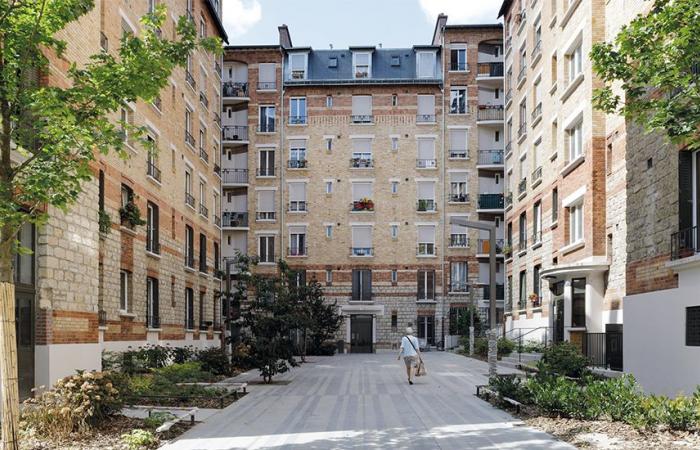The reduction in real energy consumption of housing in Parisian social housing stock will continue in 2023.
The comparison of 2022 and 2023 consumption of social housing housing, renovated or not, attests to a reduction in consumption. The 2023 report established on a panel of 99,000 social housing units (compared to 75,000 for 2022) highlights the determining impact of heating energy on the level of consumption. The strongest declines are observed for homes heated with gas, with a drop of -12% for homes heated with individual gas and -10% for homes heated with collective gas. The drop in consumption observed is -5% for homes equipped with electric heating, an energy for which the possible “remains to be gained” in terms of sobriety appear reduced due to its high price. With -3%, the drop appears more moderate for homes heated with district heating. The varied energy mix of the Parisian heating network makes it less dependent on fluctuations in energy prices.
After renovation work such as the Climate Plan, the first results of the statistical analysis, on more than 9,000 homes and 51 operations, show an average drop of 28% in real energy consumption after work, with very variable gains from one operation to the next. the other linked in particular to the characteristics of the building, the initial consumption level of each operation, the nature of the work carried out and the level of attention of lessors on the regulation of collective heating. The rebound effect – namely an increase in energy consumption following the reduction observed following the completion of renovation work – described in several studies carried out on the same theme, particularly abroad, has not been observed in Parisian operations. It can nevertheless be the cause of moderate reductions in energy consumption observed in certain operations. Considering only the year 2023 for the situation after works, that is to say a year post energy crisis during which the sobriety policies initiated by lessors weighed on the entire heating period, the average drop observed per operation reached -34%.
In a context of energy sobriety and a significant increase in electricity and gas prices, the study carried out in partnership with the City of Paris and the three main Parisian landlords: Paris Habitat, the Régie Immobilière de la Ville de Paris ( RIVP) and Elogie-SIEMP confirm the dynamics underway. The analysis of real energy consumption of housing in the Parisian social housing stock in 2023 measures the sobriety efforts made by households and landlords in the renovated and non-renovated stock between 2022 and 2023. The next updates and in particular that which will be carried out at the end 2025 with 2024 consumption data, should make it possible to integrate the Climate Plan operations completed in 2022, which should significantly increase the number housing of the works panel from 9,000 to nearly 15,000 housing units.






